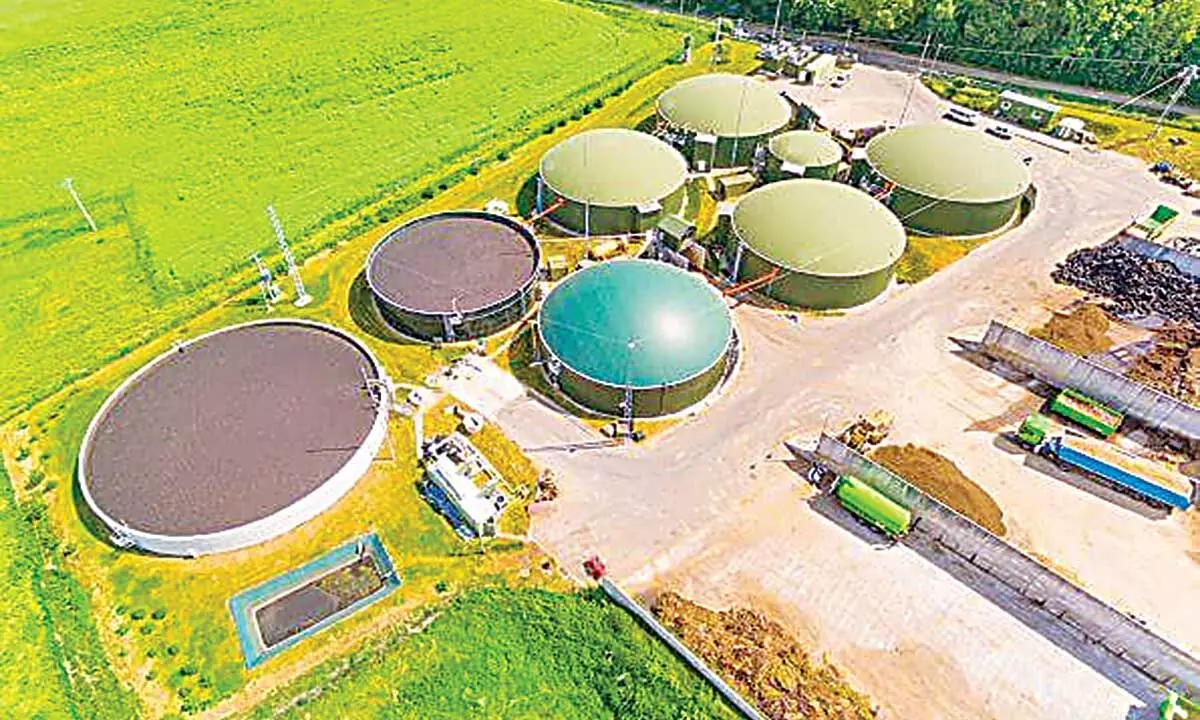Biogas under MNREGA a breather for rural women
Govt hopes that the move would provide fuel for cooking purposes, mitigate drudgery of countrywomen, diminish the pressure on forests and green cover, and accentuate social benefits
image for illustrative purpose

Rural Employment Guarantee
- MNREGA provides for 100 days work per rural household in a year
- It includes construction, repair, and maintenance works
- Such work can be done for individuals, communities and groups
- Biogas contains 55-60% methane, which is inflammable
- And 30-35% carbon dioxide and traces of nitrogen, hydrogen and water
New Delhi: Construction of biogas plants for individuals as well as for communities will now be included under the Mahatma Gandhi National Rural Employment Guarantee Scheme (MNREGA). The government has placed biogas plants in the list of works approved under MNREGA. MNREGA provides for at least 100 days work per rural household in a year. The types of works to be carried out under MGNREGA, their elements, etc., have all been specified. For instance, building is permitted; it includes construction, repair, and maintenance. Such work can be done for individuals, communities, and groups.
As many as 45 types of works are permitted under MNREGA. These come under various heads: bunds, canals, channels, grasslands, land, work shed for livelihood activity, check dams, compost pits, composting structures, crematoriums, culverts, storm water drains, grey water drains, dug wells, fish drying yards, trees, gully plugs, nurseries, mini-percolation tanks, ponds, recharge pits, roads, sand filters for well recharge, livestock shelters, and soak channels.
Other works include: soak pits, spurs, terraces, toilets, trenches, infrastructure for azola cultivation, underground dykes, embankments, rural haats, cyclone shelters, playfields, compound walls for government schools, production of building materials, storm water drains for coastal protection, stabilization ponds, community sanitary complexes, and rooftop rainwater harvesting structures in government panchayat buildings. To these works are now added biogas plants.
Biogas is a clean and efficient fuel, which is produced from cattle dung and other organic matter in biogas plant through a process called digestion, officials said.
Biogas contains 55-60 per cent methane, which is inflammable, 30-35 per cent carbon dioxide, and traces of nitrogen, hydrogen and water. The byproduct is bio-slurry which can be used as manure.
By bringing biogas plants under MNREGA, the government hopes that this would provide fuel for cooking purposes. This, officials said, will also mitigate drudgery of countrywomen, diminish the pressure on forests and green cover, and accentuate social benefits. Besides, they added, this would also improve sanitation in rural areas as sanitary toilets will be linked with biogas plants.

